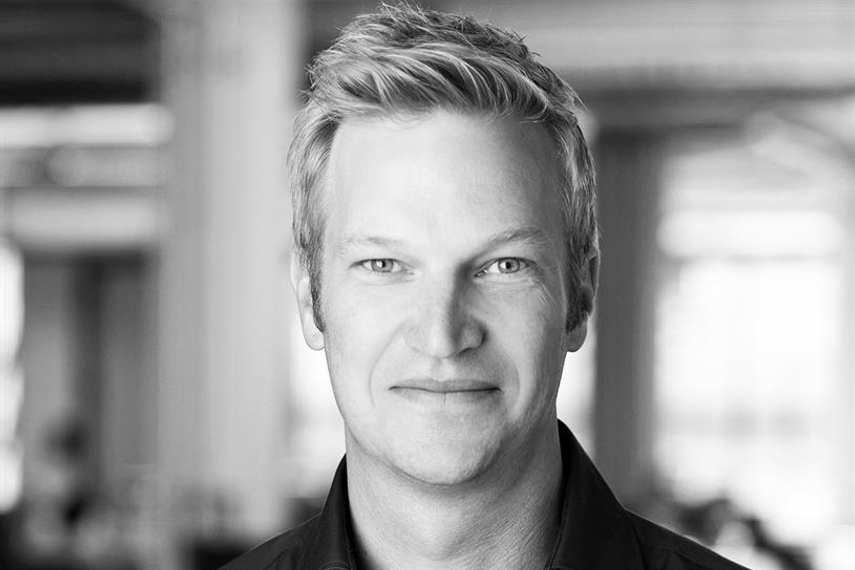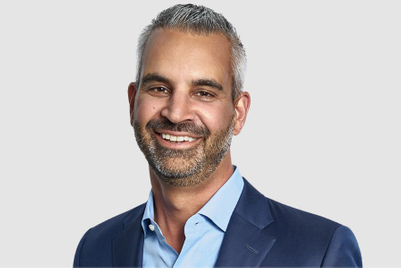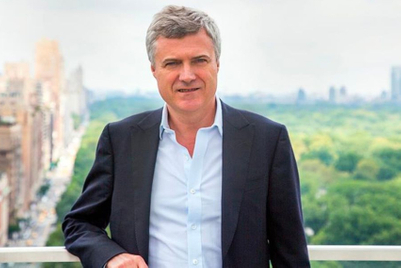
Christian Juhl, the incoming global chief executive of Group M, has said the company must recruit more widely and invest in training, but insisted he is "not worried about our growth at all" in the face of competition and automation.
In an interview with Campaign, Juhl talked about clients’ need for agencies in an increasingly "complex" media world, as well as the pros and cons of technology.
Juhl has spent five years as global chief executive of WPP's Essence, which counts Google as its top client, and people who have worked with the ex-Razorfish executive say he brings a different approach from "the old world".
T-shirts and sneakers
The 46-year-old American takes over from Kelly Clark at Group M, the world’s biggest advertising buyer, on 1 October and his promotion looks set to usher in a changing of the guard.
Juhl has already appointed Kyoko Matsushita, the Japanese-born former chief executive of Essence in Asia-Pacific, as the new global chief executive of Essence and named Jennifer Remling, global chief talent officer at Essence, as global chief people officer at Group M.
The appointments have symbolic importance, because Group M, which was created by WPP in 2003 to leverage its buying scale, has been male-dominated at the highest levels.
Juhl said his track record at Essence showed "diversity and inclusion" are "a key tenet of my management style" and that talent will be a priority for Group M, whose other agencies include MediaCom, Mindshare, Wavemaker and Xaxis.
Asked to describe his management style, Juhl said: "I prefer T-shirts and sneakers to suits and ties."
He plans to keep living in San Francisco, where Essence has its headquarters, to stay close to his 12-year-old son, although he also expects to spend a lot of time in New York and to travel about two weeks a month.
Globally, Group M has a 30% market share among the "big six" groups, ahead of Omnicom Media Group and Publicis Media on 20% each, according to COMvergence.
Group M is relatively weak in North America, where it has only 23%, behind Publicis Media on 25% and OMG on 24%. By contrast, Group M has a 32% share in EMEA and 41% in Asia-Pacific.
Complexity means more need for agencies
Juhl said agencies still play a vital role in a media ecosystem that has become increasingly complex.
"While it’s been a challenging time, I think Group M has still been quite successful," he said, acknowledging client losses such as Volkswagen Group, AT&T and GlaxoSmithKline, and the rise of in-housing in recent years.
Juhl said "the level of churn you’re seeing with clients", "the amount of new media platforms that are being launched" and questions about "data and cross-channel measurement" are all factors that "point to a greater need for agencies and the services that we can provide".
He went on: "I think the next generation of growth for Group M will be in mastering these different media environments, allowing some level of normative measurement across all these different environments and really becoming trusted advisors to these brands about where their next marketing dollar is being spent.
"I’m not worried about our growth at all. If you consider the rise of platforms like Xandr, the continued importance of Google and Facebook and Twitter and Amazon – to be able to develop deep expertise in each one of those, so that we are number one in every one of those platforms, requires the scale of a company like Group M."
Group M, which is widely regarded as the profit engine of WPP, increased net sales in the first six months of 2019.
Xaxis was a top performer, up 7%, but the rest of Group M also grew, Mark Read, chief executive of WPP, told investors, although he did not disclose numbers.
Talent
Essence has set great store by recruitment and training in areas such as data science, analytics, automation and ecommerce, and Juhl said: "The future of talent for Group M is recruiting from different types of places."
He explained: "We need to provide training opportunities and development opportunities for our current folks and look at where we recruit from and how we make sure we are preparing for the next generation of leadership.
"People from a broad background, from a very diverse background, will become more and more important for us as we evolve.
"Ultimately, clients are trying to hire really smart people to help them figure out what is an increasingly complex marketing ecosystem. We have to continue to be a place that people come to build really good careers. We have to create a culture where experimentation is rewarded and smart risk-taking allows us to succeed."
Remling will report jointly to Juhl and Jacqui Canney, who joined from Walmart earlier this year to be WPP’s first chief people officer.
More personnel changes are likely at Group M, which has a lot of long-serving senior leaders.
Jürgen Blomenkamp, chairman and chief executive of Group M Germany, announced this week he is stepping down.
Asked if Group M is likely to be bigger or smaller in five or 10 years’ time as automation and artificial intelligence eliminate basic tasks, Juhl said: "There will always be room for very smart people who are equally creatively and mathematically minded.
"While some tasks may get replaced with automation and machines, new tasks will be on the horizon that I’m sure we will be able to respond to."
New ways of working
Essence enjoyed success by setting up new operating models for different clients in the past year. Juhl said: "Without a doubt, our agencies [across Group M] need to have multiple ways of working."
Essence won L’Oréal in the UK and Ireland earlier this year by setting up a new unit, Beauty Tech Labs, that gives the client direct access to the agency’s marketing and technology systems, and it won T-Mobile in North America with a "hybrid" model that includes a consulting role on in-housing.
Juhl expects more "hybrid" roles for agencies in future.
"Some clients want to outsource their marketing function and rely on us solely. Other clients want to build things in-house and get strategic advice," he said.
"Some clients want to outsource technology. Some clients want to own their own technology and just get training on how to develop it."
He went on: "I don’t think clients expect anybody to have the answer right now. It’s complex. TV viewership is down. The promise of digital personalisation is far from realised.
"What we’ve had success with in my past is finding clients that are curious, that are trying to push boundaries, and I think those clients are going to continue to lead the way in attracting the smartest and brightest people to work on their business."
The promise of technology
Juhl said it is important to make a distinction between automation and AI.
"Group M wants to automate as much low-value, high-touch work as we can possibly do," Juhl said, citing "data-processing, the computing part of analytics – not the thinking part of analytics – and ad operations" as areas of marketing that can be automated.
Group M can also play an important role in helping to encourage broadcasters and "local media" such as news publishers to move their advertising inventory into "addressable formats" and "then we can use the power of automation to make those things more efficient", he added.
However, Juhl warned that the rise of AI "brings up a lot of complex issues" that are more problematic.
"We need to think very heavily about [the fact that] machines aren’t particularly ethical," he said. "So how we look at the [data] signals we are going to use in AI to optimise against, it’s [vital that we give that] some serious consideration before we launch all those programmes."
What the industry thinks
Zaid Al-Qassab, incoming chief marketing officer at Channel 4, knows Essence from his days as chief brand officer at BT when he appointed the agency to run the telecoms giant's £160m media account in 2017 – and he rates Juhl.
"Christian has been a visionary leader of Essence, building its capabilities in data and digital to make it an agency truly fit for the future," Al-Qassab said. "The difference compared to ‘old world’ media alliances is palpable. I fully expect him to bring that to Group M."
Johnny Hornby, chief executive of The & Partnership, which runs M/SIX in a joint venture with Group M, said: "It was a brave and good thing for Mark [Read] to appoint Christian and to signal that a digitally led, tech-savvy media business is the one to lead the media charge [for Group M]."
Some insiders warn that Juhl faces a big step up from Essence, which employs about 1,800, to Group M, which has 35,000 staff.
Nick Baughan, director of agencies at Facebook in the UK and Ireland and a former chief executive of Essence in EMEA, thinks his old boss can rise to the challenge.
"CJ is a super-smart and focused agency leader," Baughan said of Juhl. "Essence has flourished under his watch and I’ve no doubt that he will bring his same brand of integrity, energy and leadership to the whole group."
Read told Campaign at WPP's half-year results: "The media business is shifting and we need to position Group M for the next five to 10 years towards those areas where clients are increasing their investment.
"There’s no doubt that the benefits of scale are shifting from volume of media spend towards ability to navigate technology and data. There still remain scale advantages [that come from buying] in digital media, but they are expressed slightly differently than in traditional media."
When Read took charge of WPP at the start of September 2018, he promised "radical evolution". By putting Juhl at the helm of Group M, the emphasis looks to be on radical.


.jpg&h=334&w=500&q=100&v=20250320&c=1)
.jpg&h=334&w=500&q=100&v=20250320&c=1)


.jpg&h=334&w=500&q=100&v=20250320&c=1)
.jpg&h=334&w=500&q=100&v=20250320&c=1)



.jpg&h=334&w=500&q=100&v=20250320&c=1)

.jpg&h=268&w=401&q=100&v=20250320&c=1)


.jpg&h=268&w=401&q=100&v=20250320&c=1)

_3.jpg&h=268&w=401&q=100&v=20250320&c=1)
